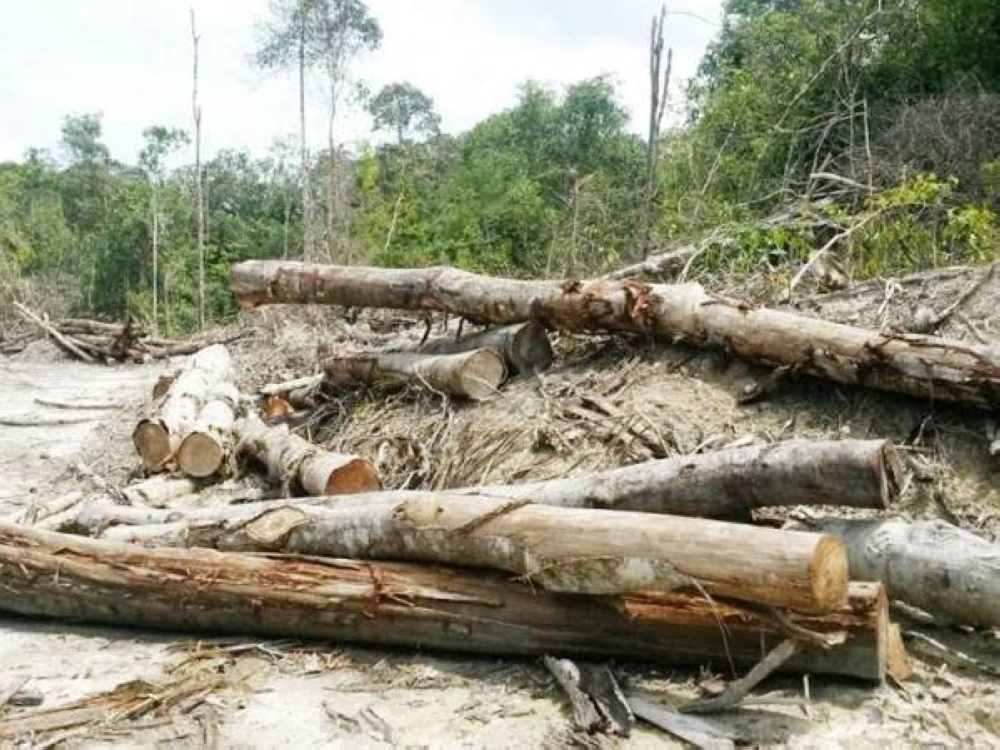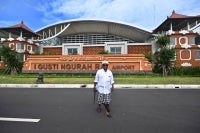Stop Illegal logging once and for all to minimise the occurrence of landslides and floods
JASON LOH AND AMANDA YEO
The increased frequency of landslides and floods has had a devastating toll on lives, livelihoods and the environment.
While struggling to recover from the COVID-19 pandemic, society still has to deal with unexpected losses from environmental disasters.
During the current northeast monsoon period, the National Disaster Management Agency (Nadma) revealed that Malaysia experienced 133 landslide incidents in total.
As of Dec 31, 2021, Selangor recorded the most number of landslides (55 cases) followed by Pahang (42), Negeri Sembilan (17), Kuala Lumpur (eight), Sarawak (six) and Terengganu (three). In that same period, Melaka and Sabah have recorded one landslide incident, respectively.
In addition, eight Malaysian states – Kelantan, Terengganu, Selangor, Pahang, Melaka, Negeri Sembilan, Johor and Sabah – have been facing some of the worst flooding in living memory.
From the deadly incidents such as the Tambun landslide, flood in Yan district and the ongoing flooding in the various states, the adverse effects of climate change – more extreme weather patterns than usual – are becoming more real and concerning.
Some might wonder: Why have more thunderstorms, heavy rainfalls, landslides and floods, for instance, been happening during recent years?
Illegal logging disrupts the ecosystem
Aside from rising temperature, the frequent occurrence of extreme weather events is associated with the human activity of illegal logging, which eventually disrupts the whole ecosystem of how nature works.
Illegal logging exists when timber is harvested, transported, processed, bought or sold in violation of national or sub-national laws. It can also happen when forests convert into agricultural plantations such as oil palm and rubber.
However, when companies prioritise profit over the environment, they would continuously cut down more trees to meet the increasing demand for timber, paper and derivative products, including packaging.
When individuals or for-profit corporations convert more natural forest areas into human land use, more carbon dioxide will be released back into the atmosphere. Subsequently, it would lead to excessive greenhouse gases (GHGs) in the atmosphere, contributing to a rise in the global average temperature of about 1.1° Celsius above the pre-industrial average.
Rise in temperature in urban areas
Such a phenomenon is not new in Malaysia. The Think City’s land temperature study indicated in March 2021 that a rise in temperature in urban areas is associated with the phenomenon of urban heat island (UHI), the lack of greenery and global warming.
As a result, five cities in Malaysia such as Ipoh, Johor Bahru, Kuala Lumpur, Bayan Lepas and George Town recorded higher temperatures of between 1.64° Celsius and 6.75° Celsius over the last few decades.
Ipoh was among the five cities witnessing the highest temperature increase of 6.75°C within 21 years between November 1998 and March 2019. Johor Bahru recorded a peak temperature increase of 6.70°C in 13 years between May 2005 and May 2018.
In addition, Bayan Lepas and George Town saw a temperature rise of 5.63°C and 6.37°C, respectively, between February 1988 and February 2020. Meanwhile, Kuala Lumpur recorded a peak temperature increase of only 1.64°C over 30 years between December 1989 and October 2019.
Tree cover loss
Under Budget 2022, the aim is to plant 20 million trees a year under the 100-million Tree Planting Campaign. Nonetheless, it is arguable that this is still not adequate to compensate for the tree cover loss over the past few decades.
According to the Global Forest Watch, Malaysia has lost 8.39 million hectares (Mha) of tree cover from 2001 to 2020 – equivalent to a 29% decrease in tree cover since 2000 and 4.82Gt of CO₂e (equivalent) emissions.
Comparing among the Malaysian states, Sarawak had the most tree cover loss, at 3.04 Mha, followed by Sabah (1.67 Mha) and Pahang (1.15 Mha) between 2001 and 2020.
While logging companies enjoy high-powered support from and privileged access to the state governments so as to obtain lucrative earnings from chopping down more trees, this comes at the expense of disrupting the basic/economic livelihoods of the Orang Asli in the interior who are highly dependent on the forest for their survival.
Moreover, even fast-growing trees will take at least three years to mature while other species require eight years or more.
As the tree planting effort takes time, a reduction in tree cover ultimately would increase the likelihood of surface water runoff, soil erosion, and a rise in river and sea levels – leaving communities staying in low-lying areas vulnerable to flooding. The loss of trees also would cause the sloped lands to be more prone to landslides.
When a large amount of debris from trees, shrubs and wood waste flows to the downstream rivers, it would eventually destruct the natural habitats and biodiversity in the years to come.
EMIR Research would like to propose the following policy recommendations:
- Temporary logging moratorium of one to two years (that can be renewed) – to enable the Forestry Department Peninsular Malaysia and the respective state forestry departments in collaboration with environmental NGOs such as Sahabat Alam Malaysia (SAM) to investigate companies involved in large-scale logging enterprises and determine the scale of exploitation and degradation.
- Implementation of security measures – under Part VIII of the National Forestry Act (1984) – to prevent illegal logging by systematic and regular use of drones, remote sensing satellites, helicopters and ground surveillance which must involve the participation of the Orang Asli.
At the same time, there should be a dedicated command and control (C&C) centre in each of the regions or divisions within a state manned by the state forestry department (under Part IV of the 1984 Act) that is supported by and in coordination with the federal enforcement division.
- Regular inspection and auditing to ensure logging takes place in compliance to the Forest Management System (FMS), including the Tree Harvesting Plan (THP), Forest Operation Plan (FOP) and Forest Engineering Plan (FEP), and not least the EIA approval guidelines (on forestry).
- Promote the production and use of wood alternatives (such as hemp, wood composites, i.e., combining wood with recycled materials, flax, etc.) as an alternative to timber.
- New reforestation campaigns – under the Malaysian Forestry Policy and by inclusion the Peninsular Malaysia Forestry Policy, Sabah Forestry Policy and Sarawak Forestry Policy – must be launched for the restoration of deforested lands.
- Total protection of the permanent reserved forests (PRFs) by abolishing the establishment of forest or monoculture plantations in line with the call made by SAM – going beyond the decision of the 79th National Land Council (Dec 2, 2021) to implement a 15-year moratorium.
- Halting logging together with land and forest clearing activities in the tanah adat/pusaka (native customary lands) of the Orang Asli and of the Bumiputeras of Sabah and Sarawak.
The Forest Management Certification under the Malaysian Timber Certification Scheme (MTCS) should take into consideration the preservation of the Tanah Adat – consistent with the Selective Management System (SMS).
- Regular cleaning and desilting of rivers and restoration or preservation of natural embankments through soil rehabilitation and planting activities.
- Clamp down on open online advertising of licences (as recently reported in The Vibes, Jan 10, 2022) by the Malaysian Communications & Multimedia Commission (MCMC).
- Full engagement with civil society and indigenous settlers that will improve multi-stakeholder participation, including in the process of EIA approvals (logging, mining).
Transparency in decisions about forest compartment allocation needs to be significantly improved and greater protection accorded to the rights of indigenous peoples.
During the moratorium period (as proposed above), the government should engage independent subject matter experts to study and evaluate the current state of affairs of logging nationwide. The purpose is to come up with the necessary recommendations and an action plan on sustainable logging.
Halting deforestation or reducing the rate of natural forest loss will restore and rebuild the balance in the ecosystem, and minimise the incidence and severity of floods that ultimately cause undesirable societal disruptions and damage to human life and property. -- Bernama.
Jason Loh and Amanda Yeo are part of the research team of EMIR Research, an independent think tank focused on strategic policy recommendations based on rigorous research.
Download Sinar Daily application.Click Here!














